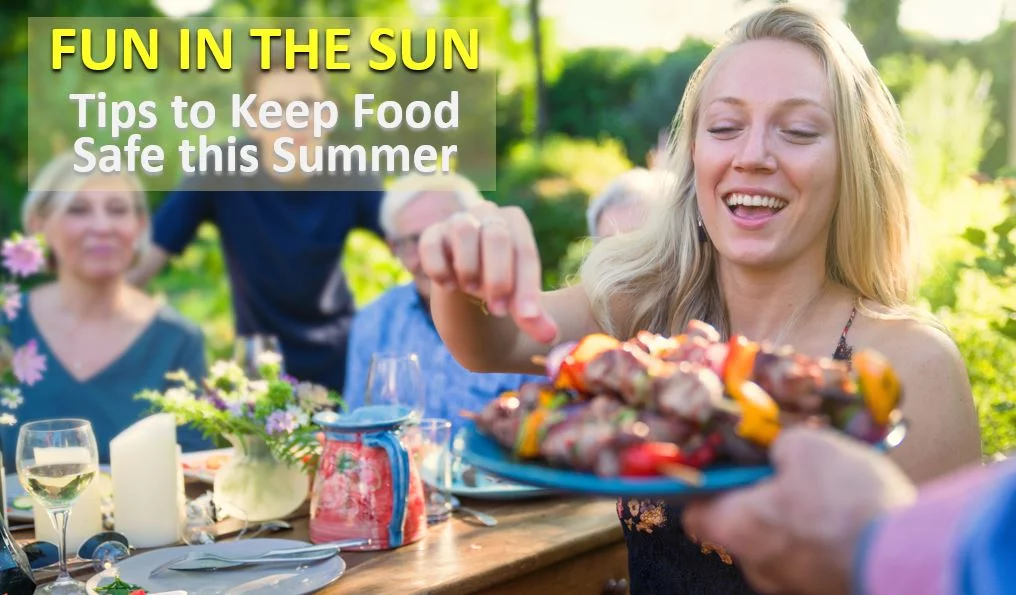Texas picnics, festivals, carnivals and barbecues with friends and family can be fun for all during the warmer months. However, it also coincides with an increase in food poisoning as warmer weather causes foodborne germs to thrive. Whether you’re planning a small family cookout or a big holiday celebration, make sure your plans include safe food handling. Here are a few tips that every safe food handler should know to help protect you and your family and friends.
Pack and Transport Food Safely
If you’re preparing food in advance for a family reunion, a graduation party, or other event, divide cooked food into shallow containers and store in the refrigerator or freezer to cool it rapidly.
- Keep the food cold. Cold food should be stored at 40В°F or below to prevent bacteria from growing.
- Limit the number of times the cooler is opened as much as you can.
- Don’t cross-contaminate. Be sure to keep raw meat, poultry and seafood securely wrapped.
- Clean your produce. Rinse fresh fruits and vegetables before packing them in the cooler and dry them with a paper towel.
When Grilling
- Throw out marinades and sauces that have touched raw meat juices, which can spread germs to cooked foods.
- Keep meat, poultry and seafood refrigerated until ready to grill. Keep 40В°F or below in an insulated cooler.
- When handling raw meat, chicken, and seafood, separate from other food to avoid cross contamination.
- Wash your hands before and after handling food.
- Cook food thoroughly. When it’s time to cook the food, have your food thermometer ready. Always use it to be sure your food is cooked thoroughly.
- Don’t reuse platters or utensils. Be sure to grab a clean plate and utensils.
- Refrigerate leftovers within 2 hours of cooking.
Picnic Site Preparation
- Outdoor hand cleaning: No access to running water? No problem! Use a water jug, some soap, and paper towels or disposable wipes or hand sanitizer.
- Utensils and serving dishes: Be sure to keep all utensils and platters clean when preparing food.
At Fairs, Festivals, Carnivals and Rodeos
- Before buying food, be sure the vendor has a food handlers license, or food manager certification, or that their employees have food handlers' cards and wear gloves and use tongs when serving food.
Just remember, what you’ve learned in your food protection course can extend beyond your place of employment and into your personal life. Take advantage of what you’ve learned in order to obtain your food handlers permit and help ensure these best practices are being implemented for everyone’s safety when enjoying the fun in the sun this summer season.

